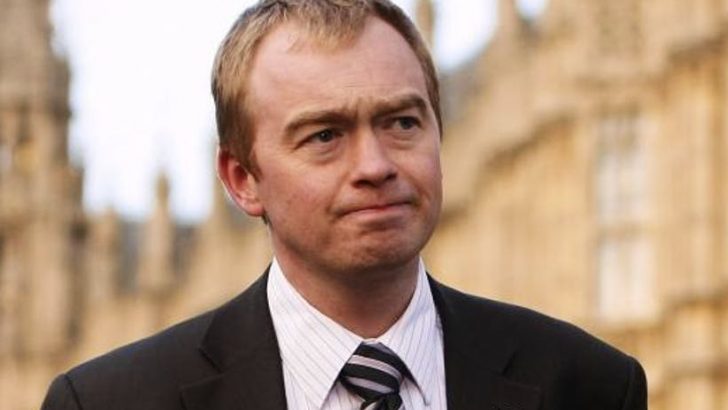An announcement last Wednesday night, drowned in the saturation coverage of London’s appalling tower-block fire, deserved not just to make the news but to trigger a national examination of conscience. Sadly, it hasn’t.
Tim Farron, an evangelical Christian, decided to stand down as leader of Britain’s third party, the Liberal Democrats, because “to be a political leader – especially of a progressive, liberal party in 2017 – and to live as a committed Christian, to hold faithfully to the Bible’s teaching, has felt impossible to me”.
This was not, he made clear, because of tension between his personal convictions and the policies of his party, with which he is in full agreement, but because of how he was relentlessly hounded by the media during the election campaign over his religiously-held moral beliefs.
“I seem to be the subject of suspicion because of what I believe and who my Faith is in,” Farron said, adding: “In which case we are kidding ourselves if we think we yet live in a tolerant, liberal society.”
Hounding
The hounding began on Channel 4 News early in the campaign when Farron was asked about his personal views on gay sex and abortion. Farron made clear that he supported the current laws on abortion and same-sex marriage – as a matter of civil rights.
Nor did he believe Christians had the right to impose their moral beliefs through the law to curtail those rights. What matters, he insisted, was what people fought for – and he fought for the rights and freedoms of all. “That’s what makes a liberal.”
But the interviewer, Cathy Newman, kept pressing him. Did he believe gay sex was sinful? Did he not hold abortion to be morally wrong? Farron ducked and weaved, quoting the Bible about not judging others and making clear that all are sinners, but Newman pursued him, insisting that his biblical view (she assumed) that gay sex is sinful was not compatible with “liberal values”.
Farron stuck to his line that to be a liberal was to defend the rights of all minorities, and that he was not putting himself forward as a religious leader, so his theological opinions were not a matter of public interest.
Farron understood what liberalism is, Newman did not.
Farron was upholding a traditional liberalism, the one underpinning western democracy, in which the public sphere is an arena in which people of different moral convictions and beliefs can meet in a shared civic space which defends the rights and freedoms of all, irrespective of those beliefs.
It is a notion which the Popes have defended as a ‘positive secularity’: states should not be “confessional”, that is, they profess no particular religious or moral outlook, but through debate and dialogue should enact laws that protect and regulate the rights and freedoms for all – including, crucially, a freedom of conscience – for the common good of all.
The opposite is theocracy, where the state upholds or enforces a system of beliefs and values which must be held by all who belong to the community. Those who don’t are heretics, who must be excluded.
The secular version of this is what Farron’s interviewer was preaching: progressive beliefs essentially defined by the state are a precondition for participation.
Irrespective of his convictions on public policy, therefore, if Farron believes gay sex is sinful, or abortion a moral tragedy, he must be held to account until he either resigns or cracks, submitting tearfully and repentantly to the civic orthodoxy.
If this interview were followed by a chorus of sympathy for Farron and a repudiation of his inquisition, one might have taken heart. Sadly, it was merely the invitation to bring out the rack and tighten the noose. Shadow Chancellor John McDonnell said it was “appalling” if Tim Farron believed homosexuality was a sin, and everywhere he went on the campaign and even in Parliament he was continually asked the same question.
Eventually, under overwhelming pressure, he said on April 25 he didn’t think gay sex was a sin while insisting that people did not want politicians pronouncing on such matters.
The statement failed to convince his inquisitors, while disappointing Christians who admired him for his refusal before then to crack.
In his statement, Farron humbly admits that “a better, wiser person may have been able to deal with this more successfully, to remain faithful to Christ while leading a political party in the current environment”.
But the issue is not whether Farron handled his hounding well. Nor is the issue whether, as a committed Christian, it was possible for him to sustain a public policy position, notably on abortion, so sharply separated from his convictions. (Catholic politicians are asked to take a far more critical stance.)
The issue is whether he should have been hounded in the first place, whether the media had the right to interrogate him about his notion of sin, which is not a matter of public policy, or to judge him for a theological position they obviously regard as bizarre and retrograde.
Scrutiny
Unlike many Anglican and Catholic politicians under scrutiny who usually say they belong, in a tribal sort of way, but don’t actually agree with their Churches’ positions, Farron at the end of his resignation speech made clear that he preferred to give up party leadership rather than renounce his faith.
When I was publicly arguing against same-sex marriage in dozens of interviews back in 2012, I too was continually asked the same question. Surely the Church opposed same-sex marriage because it believed gay sex was sinful?
The question, I said, was simply whether it was good for society, children and the civil institution of marriage to redefine marriage as between two people of the same sex, but no one seemed capable of grasping the distinction between the religious and the civic, between sins and crimes, that is as old at least as St Thomas Aquinas. The very notion seemed a logical impossibility.
A religious person arguing against the civil redefinition of marriage was barely different from ISIS throwing gay people off tall buildings.
Farron has fallen foul of the same spectacular illiteracy and intolerance. In his case, he defended same-sex marriage, yet even then was not allowed to hold, privately and in conscience, to a biblical view of God’s purpose for sexuality. Deviation had to be expunged.
Farron’s hounding is proof that in Britain public democratic discourse has renounced a central premise of liberal western democracy.
Once we resort to theocracy, whether of a religious or secular variety, as Farron says, liberalism and tolerance are over. All that is left is a Hobbesian struggle to capture the state in order to impose an official morality, while the Christian Church, defamed by progressives as intrinsically theocratic, vainly holds the flame alive for true liberalism.
Farron poignantly noted at the end of his resignation speech that he was a passionate liberal, a lifelong member of the party and loved being its leader. He could only give it up, he said, because something greater was at stake, which he could never renounce.
‘What was it?’ he asked rhetorically, before answering with the words of Isaac Watts: “Something ‘so amazing, so divine, (it) demands my heart, my life, my all’.”
Austen Ivereigh is the author of The Great Reformer: Francis and the Making of a Radical Pope.


 Austen Ivereigh
Austen Ivereigh Tim Farron
Tim Farron 